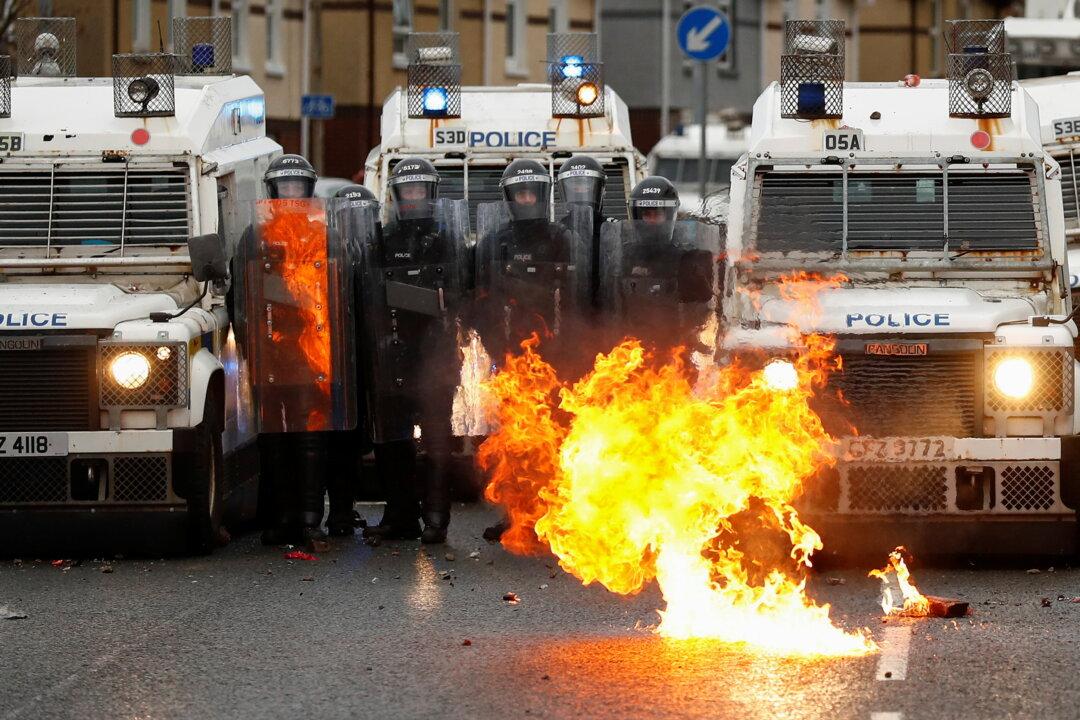Young people’s involvement in the riots in Northern Ireland has been “tragic and deeply concerning,” a British minister has said while appealing for dialogue among communities in the province.
“It is tragic and deeply concerning that young people have been engaged in and encouraged into this violence and as a result will now end up with criminal records,” said Brandon Lewis, the UK secretary of state in charge of Northern Ireland affairs, in the House of Commons on Tuesday.





